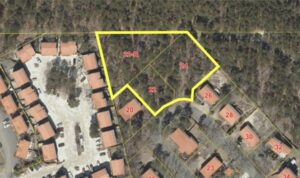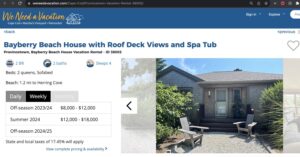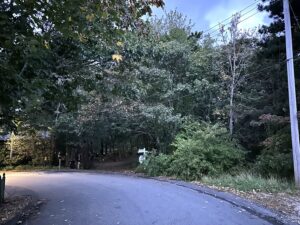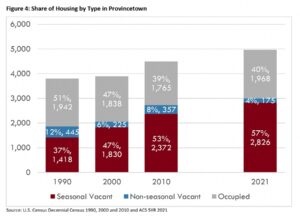WELLFLEET — The select board at its May 13 meeting turned down a request by Del Mar Vacations, an Orleans-based short-term rental management company, to park its trailer on the town’s lot at the Adult Community Center off Old County Road.
Last summer, the company parked a trailer holding linens and other equipment at the lot on the town pier, using it as a staging area for Del Mar’s weekly cleanings and turnovers.
The steady stream of cars going to and from a trailer parked on the north side of the pier on Saturdays got then-interim Harbormaster Stuart Smith’s attention. Parking is at a premium at the busy marina during the summer, and the spots being used by the trailer were reserved for boat mooring and slip holders, Smith said.
When he reported the problem to John Wolf of the select board, he set in motion a months-long effort by Town Administrator Tom Guerino to accommodate Del Mar in a different spot this season.
The requested permit would have cost $1,430 and would have allowed Del Mar to park a trailer at the lot on Saturdays from June 21 to Sept. 13. The company’s cleaning staff would visit the trailer to retrieve items during work hours, according to the application.
The board’s reasoning was not about the amount of traffic that would result but about the members’ view of the company’s past practices. “They’ve previously utilized areas, particularly the marina, without authorization,” said board member Ryan Curley. “I can’t support their operation on town property.”
Del Mar’s CEO, Luke Chapman, who was not at the May 13 meeting, told the Independent that he had not known he was violating any rules by using the marina lot last season.
“We were certainly not trying to impose on anybody’s space,” he said. Chapman said he was unaware that securing a permit and paying fees were necessary to use town parking lots for his business until he heard from Guerino about the possibility of making an alternate plan last fall.
Wolf raised another concern at the May 13 meeting. “I have deep misgivings about supporting a business model that has adversely affected this community,” he said, “with buying up vacation rentals and turning them into short-term rentals.”
Curley agreed, saying, “This is not a type of business I can support.”
Chapman told the Independent he objected to Wolf’s and Curley’s characterization of his business. For one thing, he said, Del Mar does not own the properties it manages. Nor does his business remove houses from the year-round rental market, he said. “The homes I manage on average are over a million dollars,” he said. “They’re not really year-round housing stock.”
Although Curley had asserted at the meeting that Del Mar controls a third of the vacation rentals in Wellfleet, the company’s website shows 46 listings in Wellfleet at an average price of $864 per night.
Chapman said that as his business has grown from one handling seven rental houses in Wellfleet in 2016 into one managing 380 houses from Osterville to Provincetown today, it has produced 98 year-round jobs.
“It’s a little odd to me that something as simple as a 12-Saturday-long parking permit that we would pay for would be denied,” Chapman said.
Wellfleet Director of Community Services Suzanne Grout Thomas said after the May 13 meeting that when Guerino contacted her last fall to ask about arranging for Del Mar to use the lot at the Adult Community Center, she supported the idea as long as the company would agree not to discard waste on the lot or in the center’s dumpsters.
She said she knew that slip owners often struggle to find a convenient place to park to board their boats, adding that the community center lot is less busy on weekends than the marina’s.
After the board voted to deny the request, Guerino said he would inform Del Mar of its determination.
Chapman was frustrated by the board’s choice. “I’m in hospitality,” he said. “You can see how that just doesn’t vibe with who I am.”
For now, he said, the company is seeking an alternative base of operations for its Outer Cape rental turnovers.





